How the idea Translation of the Body came about
The idea of translating the remains of Rouget de Lisle at the Panthéon was not a new idea. On 30 April 1913, one could read in the French periodical Gil Blas “Neither Rouget de Lisle, nor Chenier or Méhul were entitled to receive the honours of Panthéon. France did not mark its eternal gratitude and reconnaissance to Tyrtaeus. Shocking injustice and darkest ingratitude that should therefore be repaired by celebrating the apotheosis of La Marseillaise and Le Chant du Départ [Song of the Departure] by the translation of the remains of their respective composers”.
Early in the year 1915, many journalists and politicians started pursuing this idea. By July 1915, everybody was speaking about it. On 5 July, journalist Léo Poldès interviewed several personalities on the translation for the periodical Le Bonnet Rouge. Paul Painlevé, Deputy for Seine, declared that “To celebrate, in the midst of war, the secular glory of La Marseillaise by means of the translation of the remains of Rouget de Lisle to the Panthéon is, I believe, the greatest celebration one could think of during this heroic epoch”. The question was also asked to the famous reporter Pierre Giffard who recalled that he had also written in the periodical Le Petit Parisien on 26 April 1915 a favourable article.
On 6 July 1915, a vote was processed on an emergency basis in the city hall of Paris. On 10 July (or 11) the Council of Ministers decided on the translation of the remains to the Panthéon. The organisers only had a couple of days left to organise the ceremony for July 14 !
Two Resting Places for One Body
On July 1915, French journalist Pierre Giffard (1853-1922) declared that it would be rather difficult in such a short period of time to obtain a favourable response from the two Houses–the Senate and the Chambers of Deputies–and obtain a vote in favour of the translation at the Panthéon since a legislative measure was required. This particular legislative measure was also pointed out by Eugène Pierre (1814-1925), then secretary of the Speaker of the Chamber of Deputies.
Since it was parliamentary break both houses were in recess. Neither the Senate Speaker Antonin Dubost (1844-1921), nor the Speaker of the Deputies’ Chamber Paul Deschanel (1855-1922) wished to personally take the decision of getting past the votes of both houses. Consequently, the translation of the body of Rouget de Lisle was decided on 10 or 11 July by the members of the French Council of Ministers and the act published in the Journal Official the same day. The city of Choisy-le-Roi was also informed at the same time.
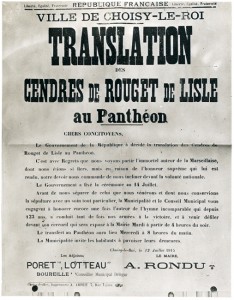 The poster on the left was printed and plastered on the walls of Choisy-le-Roi on 12 July 1915 on the occasion of the translation of the remains of Rouget de Lisle from Choisy-le-Roi to Paris. The address to the citizens of the city of Choisy-le-Roi by their mayor invites them to come to the city hall to pay their tribute to the author of La Marseillaise on 13 July. In the address it is twice stated that the remains will be laid to rest at the Panthéon.
The poster on the left was printed and plastered on the walls of Choisy-le-Roi on 12 July 1915 on the occasion of the translation of the remains of Rouget de Lisle from Choisy-le-Roi to Paris. The address to the citizens of the city of Choisy-le-Roi by their mayor invites them to come to the city hall to pay their tribute to the author of La Marseillaise on 13 July. In the address it is twice stated that the remains will be laid to rest at the Panthéon.
On 13 July 1915, the French government eager not to thread upon the prerogatives of the Legislative Assembly, issued a decree which authorized the translation of the remains of Rouget de Lisle to the Hôtel national des Invalides, in Paris since no legislative measure was required for this purpose.
The unsigned second poster on the right was also printed and plastered on the Parisian walls. It details the full-day programme and lists the names of the personalities and officials who had to attend the ceremony. In the first line of the title, “Panthéon” was replaced by “Hôtel des Invalides”.
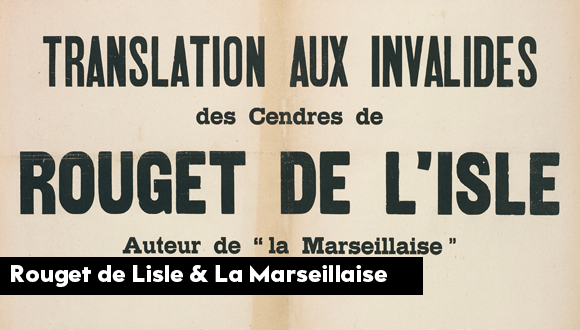
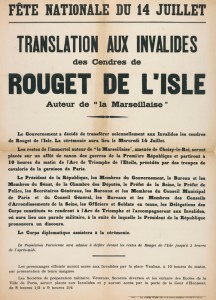
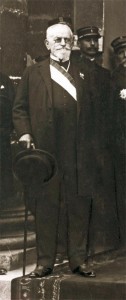
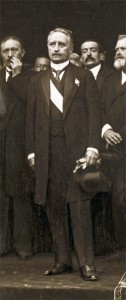

Ajouter un commentaire